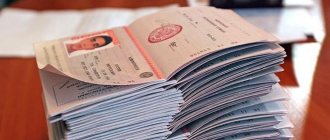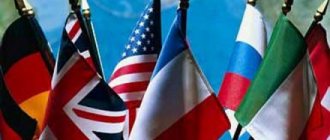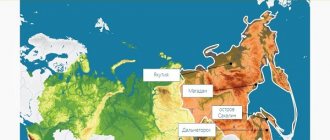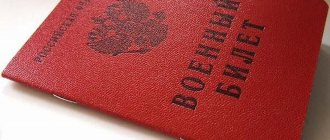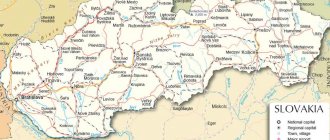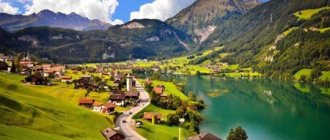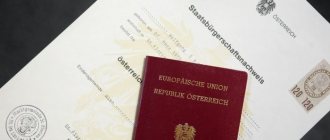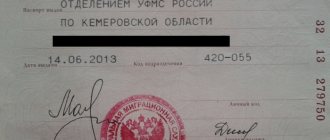The current President of Ukraine Petro Poroshenko considered the decree to be another gross violation of the sovereignty of Ukraine and a violation of Russian obligations under the Minsk agreements. He believes that in this way the Kremlin is taking a step towards the annexation of Donbass.
The team of President-elect Vladimir Zelensky in a statement issued by Fr.
Read on RBC Pro
Head of Auchan in Russia - RBC: “Auchan’s business model no longer works” “You are humiliated and you are being humiliated in return”: Skolkovo experts talk about toxic companies RBC Pro: is it worth blackmailing your employer by leaving RBC rating: top 50 most popular franchises
Zelensky's headquarters demanded to respond with sanctions to Putin's decree on passports Politics
How to obtain a passport according to the decree
People permanently residing in the territories of Donbass not controlled by Kyiv can submit an application for Russian citizenship to the authorized territorial body of the Ministry of Internal Affairs. Along with the application, they must provide an identity card with a mark of registration in the territory of the corresponding region of the Donetsk or Lugansk regions of Ukraine. In addition, you must provide a document confirming the citizenship of a foreign state, show a certificate of marriage or divorce and birth certificates of children, which are indicated in the application for admission to Russian citizenship.
Where will passports be issued?
DPR militiaman Alexander Zhuchkovsky clarified to RBC the details of the procedure for issuing Russian passports to residents of the unrecognized republics. Work to create the appropriate infrastructure has been carried out since the end of February at the Federal Migration Service of the Rostov and Voronezh regions. Checkpoints have been built near the border, passport forms have been prepared, and cars have been purchased that will travel with documents from the territory of the republics to the Federal Migration Service. Mobile points have been deployed near the border checkpoint to facilitate the acceptance of documents from people who find it difficult to get to stationary points in Russia. First of all, the documents will be received by security forces and the military, most of whom wrote applications already in March-April, then republican civil servants and public sector employees, Zhuchkovsky said.
The Ministry of Internal Affairs explained the procedure for obtaining Russian passports for residents of the DPR and LPR Politics
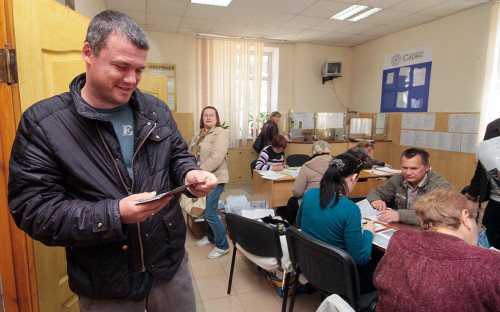
Passports will be issued in the Rostov region, the Russian Ministry of Internal Affairs later clarified. At the same time, residents of these areas will receive citizenship without giving up their current Ukrainian citizenship. The application review period will be three months.
Will migration to Russia increase?
How easy it will be to obtain a passport depends on the regulations adopted, says Yevgeny Bobrov, chairman of the Human Rights Council commission on migration policy. He believes that many who received passports will remain living in the same place; a migration wave should not be expected, since those who wanted to leave the republics left them during the years of conflict. Zhuchkovsky agrees with Bobrov.
It is difficult to say exactly how many citizens of the LPR and DPR will emigrate to Russia as a result, but it is clear that it is impossible to accept everyone - this will increase the degree of political confrontation, believes the former head of the Federal Migration Service, president of the Migration 21st Century Foundation, Vyacheslav Postavnin. He believes that allowing residents of the LPR and DPR to receive Russian passports carries “criminal risks.” RBC's source in the Investigative Committee noted that Russian security forces will carefully filter applicants for citizenship.
Donbass has taken the path of Transnistria Politics
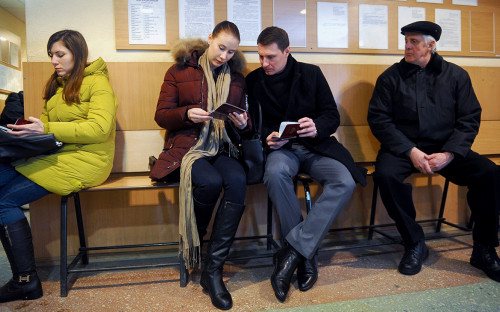
The population of both republics, according to official statistics of the DPR and LPR, is 3.7 million people. As an RBC investigation showed at the beginning of 2021, holders of DPR and LPR passports can use the services of the Russian railway, airlines and hotels. Since 2014, 2.5 million Ukrainian citizens have officially migrated to Russia, said Leonid Kalashnikov, Chairman of the State Duma Committee on CIS Affairs, in April 2021.
Ban. DPR and LPR.
Once again we turn to the topic of entry bans into the Russian Federation for a reason. Currently, there is a turning point in the practice of making decisions on bans. The LPR and DPR, being the place of residence of a number of citizens, within the framework of the topic under consideration, acquires not only political, but also legal significance.
Previously, we considered the ban on entry to citizens of Ukraine as absolutely ordinary, i.e. there were no specific features regarding the annulment of these bans. This is not the case now.
Our podcast “How to lift the ban on entry into the Russian Federation?” →
You can follow us on social networks and contact us with any questions you may have.
Our video instructions on how to draw up an application and claim to lift the ban on entry into the Russian Federation.
Despite the fact that the Russian Federation has not confirmed the independent international legal status of these entities, the attitude towards the people inhabiting them is special. Thus, on April 24, 2019, the President of the Russian Federation signed Decree No. 183, which allows residents of certain areas of the Donetsk and Lugansk regions to be granted Russian citizenship in a simplified manner.
Having familiarized yourself with the contents of the mentioned Decree, you can make a fair conclusion that formally it in no way relates to the topic of prohibitions. The LPR and DPR are simply defined here as areas, residence on whose territory gives the right to use a simplified procedure for obtaining our citizenship. However, the ban, the DPR, and the LPR are actually interconnected here. We can draw this conclusion thanks to the emerging practice of lifting the ban in Bryansk, or more precisely, the Migration Department of the Ministry of Internal Affairs, located on the territory of Bryansk.
Let's say a decision was made to ban. The LPR is the place of registration of the citizen in respect of whom the decision was made. Moreover, such a citizen (usually a citizen of Ukraine) intends to obtain Russian citizenship using the simplified procedure that appeared in April 2019. In this case, the Ministry of Internal Affairs will lift the ban, at least when it comes to the Bryansk ban. It is easy to guess that a similar decision will be made when instead of the LPR there is a DPR, i.e. a ban has been established, the DPR is the place of residence of the citizen in respect of whom it was adopted.
Let us emphasize that there have indeed been fundamental changes in attitude towards entry bans. The LPR has never previously been considered as an exceptional circumstance, which is taken into account by the competent authorities when canceling entry bans for citizens of Ukraine. The entry ban, the DPR as a mitigating circumstance when it is lifted, is a similar story.
Let us illustrate the above with a real example from practice.
In May 2021, a Ukrainian citizen contacted us with the problem of the Bryansk ban. Consequently, there was actually a ban on entry into the Russian Federation. The DPR was the place of actual residence of our client. In addition, our client was officially registered on the territory of the DPR, which was not taken into account by the Migration Department of the Russian Ministry of Internal Affairs for the Bryansk Region, which made the corresponding decision on the entry ban. Having drawn up a statement demanding the lifting of the entry ban, we named the DPR as a circumstance that should be regarded by the Ministry of Internal Affairs as exceptional. In particular, we indicated:
A) The client’s presence at her place of residence in the DPR may have possible adverse consequences for her;
B) At present, an exceptional situation has developed in the DPR, which, by universal recognition, is characterized by the presence of emergency circumstances accompanied by the death of people;
C) The application of punishment in the form of a ban on entry into Russia will entail the risk of harm to the life and health of our client;
D) Among the above, it should be taken into account that in connection with the events in Ukraine, the Government of the Russian Federation is taking certain measures aimed at providing temporary asylum on the territory of the Russian Federation to citizens of Ukraine and stateless persons permanently residing in the territory of the DPR and LPR;
E) Moreover, a Decree of the President of the Russian Federation has been adopted, which allows citizens living in the territories of the DPR and LPR to obtain Russian citizenship, which the client plans to take advantage of in the near future;
E) Under such circumstances, imposing a punishment on the client in the form of a ban on entry into the Russian Federation cannot be considered consistent with the purposes of punishment and the principles of sentencing.
So, trying to cancel the ban on entry into the Russian Federation, we indicated the DPR as an exceptional circumstance, since military operations are taking place on its territory and, as a result, residents are dying. It is easy to guess that if the entry ban is lifted, the LPR will have identical legal meaning, since the war continues there too.
We note that, in addition to the entry ban, our client was also sentenced to deportation. The DPR, as we have emphasized, currently cannot be regarded as a safe place for a foreign citizen to stay. In other words, deportation and the DPR are currently mutually exclusive circumstances. In particular, international legal standards for the protection of human rights became the legal basis for our position:
A) By virtue of Art. 7 of the International Covenant on Civil and Political Rights, a citizen cannot be extradited in a situation in which there are compelling reasons to believe that in the state that makes the corresponding request, such a citizen may be subjected to torture or other punishment that degrades human dignity;
B) In accordance with Art. 3 of the Convention for the Protection of Human Rights and Fundamental Freedoms, inhumane punishment is a situation in which the punishment lasts for several hours, as a result of its application actual physical harm or mental and physical suffering may be caused. A punishment that degrades human dignity is a punishment that can cause a citizen to feel anxiety, fear and inferiority.
It is important to understand that when canceling an entry ban, the LPR (DPR) may not be the only exceptional circumstance. For example, a citizen of Ukraine may have close Russian relatives, study at a Russian educational institution, etc. The more exceptional circumstances a citizen indicates, the greater the likelihood that the Ministry of Internal Affairs will lift the ban on entry into the Russian Federation. Since in the case considered, our client’s only exceptional circumstance was residence and registration on the territory of the DPR, we supplemented it with an indication that our client has always respected the legislative norms of the Russian Federation, including the migration legal norms of the Russian Federation.
As a result, at the beginning of June 2021, the Migration Department of the Russian Ministry of Internal Affairs for the Bryansk Region, having familiarized itself with our arguments, allowed the client to enter the Russian Federation.
Thus, the entry ban for Ukrainian citizens can recently be canceled in the presence of such exceptional circumstances as residence on the territory of the DPR (LPR) and the desire to obtain Russian citizenship.
Why does the Kremlin need this measure?
The decree may be Moscow’s response to a series of signals sent during the election campaign of Vladimir Zelensky and running counter to the Minsk agreements, says political scientist Oleg Ignatov. Zelensky spoke about refusing an amnesty for residents of the unrecognized republics, giving the territories a special status and unwillingness to enter into direct negotiations with the leaders of the DPR and LPR.
Ignatov is sure: Moscow has made it clear that it is Ukraine, and not Russia, that must make concessions and compromises. Political scientist Alexei Makarkin agrees with this: “The willingness and ability of the elected president to make concessions will demonstrate that negotiations with him make sense. And if he doesn’t give in, then there’s no need to build a relationship with him.”
As an example of the concessions that Moscow can expect from Kyiv, Makarkin named the procedure for implementing the Minsk agreements. Moscow insists that Kyiv must hold elections in the Donbass before the eastern border with Russia is closed. In addition, the Kremlin is seeking the integration of Donbass into Ukraine on the terms of federalizing the country and blocking such foreign policy decisions as joining NATO.
What will happen after the issuance of passports to Donbass
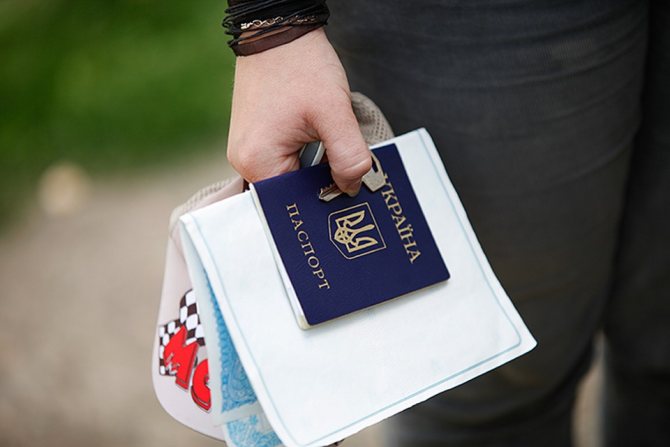
Ukraine abandoned its citizens in Donbass even earlier, refusing to arrange the payment of pensions and social benefits
Photo: Dmitry AKHMADULLIN
Russian President Vladimir Putin signed a decree on simplified receipt of Russian passports for Donbass residents. Now residents of the LDPR will be able to obtain Russian citizenship within 3 months from the date of submission of the application. “KP” understood all the intricacies of this issue.
1. WHY IS THIS DONE?
The issue of granting Russian citizenship to residents of the LDPR has long been discussed in our society. The primary reason is to protect the population of Donbass. With the change of power, there are fears that the military conflict could flare up with renewed vigor if the revanchists decide to spit on Zelensky’s “peacefulness.” In addition, after the constitutional reform and the transformation of Ukraine into a parliamentary republic, the decisions of President Zelensky may no longer be important for other branches of the Ukrainian government. No one excludes the possibility of a new coup on Independence Square. The presence of Russian citizens on the territory of Donbass is an additional justification for their protection from war.
2. WHY NOW AND NOT BEFORE
Look for the reason in the actions of the Ukrainian authorities. If the first presidential and parliamentary elections after the Maidan took place in an atmosphere of disorder and chaos, when it was possible to attribute the exclusion of Ukrainian citizens in Crimea and Donbass from voting to this bedlam. Now, 5 years later, relative order has been established in Ukraine, the state is functioning properly, but citizens of Ukraine in the same territories (plus citizens who work in the Russian Federation) were similarly deprived of their basic civil rights. Ukraine abandoned them even earlier, refusing to arrange the payment of pensions, social benefits, and other assistance, but now, having again deprived them of the opportunity to vote, it refused to provide them with civil rights guaranteed by the state.
The first presidential and parliamentary elections after the Maidan took place in an atmosphere of disorder and chaos. Then it was possible to attribute the exclusion of Ukrainian citizens in Crimea and Donbass from voting to this bedlam
Photo: Nigina BEROEVA
3. DOES THIS MEAN THAT RUSSIA HAS REFUSED THE MINSK AGREEMENT AND WILL RECOGNIZE THE INDEPENDENCE OF THE LDPR OR WILL INCLUDE THEM INTO THE RF?
The Decree itself does not provide any grounds for talking about this. Such a step could cause even greater tension in relations between the Russian Federation and Western countries, and our allies are clearly not ready for such radical steps by Russia. In addition, Russia always keeps its word to its negotiating partners. This process can be launched if Kyiv withdraws from the Minsk agreements. For now, on the contrary, obtaining passports by the population of Donbass is an additional guarantee of the implementation of the Minsk agreements and ensuring the lives of civilians. Donbass remains part of Ukraine, but a Ukraine that must undergo reform through federalization. In addition, if we look at the example of Transcarpathia, then the same Hungary massively issued its passports to ethnic Hungarians, but this does not mean that the Transcarpathian region will become part of Hungary in the near future. It’s the same with Poland and the Lviv region, where many are happy to receive a “Pole’s card.”
With the change of power, there are fears that the military conflict may flare up with renewed vigor
Photo: Alexander KOTS
4. WILL THE ISSUANCE OF PASSPORTS BE FORCED?
The issuance of Russian Federation passports will not be of any compulsory nature. For now, we can say that all residents who want them will receive passports. The optimal option has been chosen - issuing and receiving passports from authorized bodies in the territories of nearby regions of the Russian Federation. At the same time, residents of Donbass will not be required to officially renounce Ukrainian citizenship or LDPR passports. By the way, this is in contrast to the actions of the consulate of the same Hungary in Transcarpathia, which issued Hungarian passports on the territory of Ukraine. As for elderly residents of the LDPR who will not be able to travel to the territory of the Russian Federation due to age or health reasons, there is no doubt that the persons authorized by them will be able to act in their interests with a notarized power of attorney.
5. WHAT WILL THIS GIVE TO THE RESIDENTS OF DONBASS?
In addition to additional security guarantees, they will not be required to comply with even the most lenient regime of restrictions on living and working in Russia, which was established earlier. The issue will also be resolved regarding many militia residents of Donbass, whom some functionaries of the Russian law enforcement agencies intended to deport. Children in the Donbass will be able to study in Russia outside of any specialized quotas, and the elderly will receive all the necessary social and medical assistance on the territory of the Russian Federation.
After constitutional reform and the transformation of Ukraine into a parliamentary republic, the decisions of President Zelensky may no longer be important for other branches of Ukrainian government
Photo: REUTERS
6. HOW WILL THEY REACT TO THIS IN UKRAINE?
That should be the least of our worries. Without a doubt, the ninth wave of howls of hysterics will rise on Nezalezhnaya. The new president or the old one (at the end of his duties) will be required to restore order by military means, by force. But there will be nothing like it. Ukraine is now incapable of powerful aggression. The new leader will not want to start his presidency with a new round of war, which is obviously losing for him and his country. The old man can give such an order, but hardly anyone will carry it out.
7. WHAT'S NEXT?
Next, Ukraine will have to decide - either the implementation of the Minsk agreements in full format as soon as possible, which are already not respected, or, if Kiev refuses this format for resolving the conflict, in the future the LDPR may be recognized by Russia as independent states, and eventually enter into its composition is not only population, but also territory.
PS I’m probably going quite far in my assumptions, and the following of them may sound absolutely fantastic, but I would not exclude such a scenario when Russian citizenship after some time could be granted to ordinary citizens of Ukraine who are permanently in our country for earnings.
